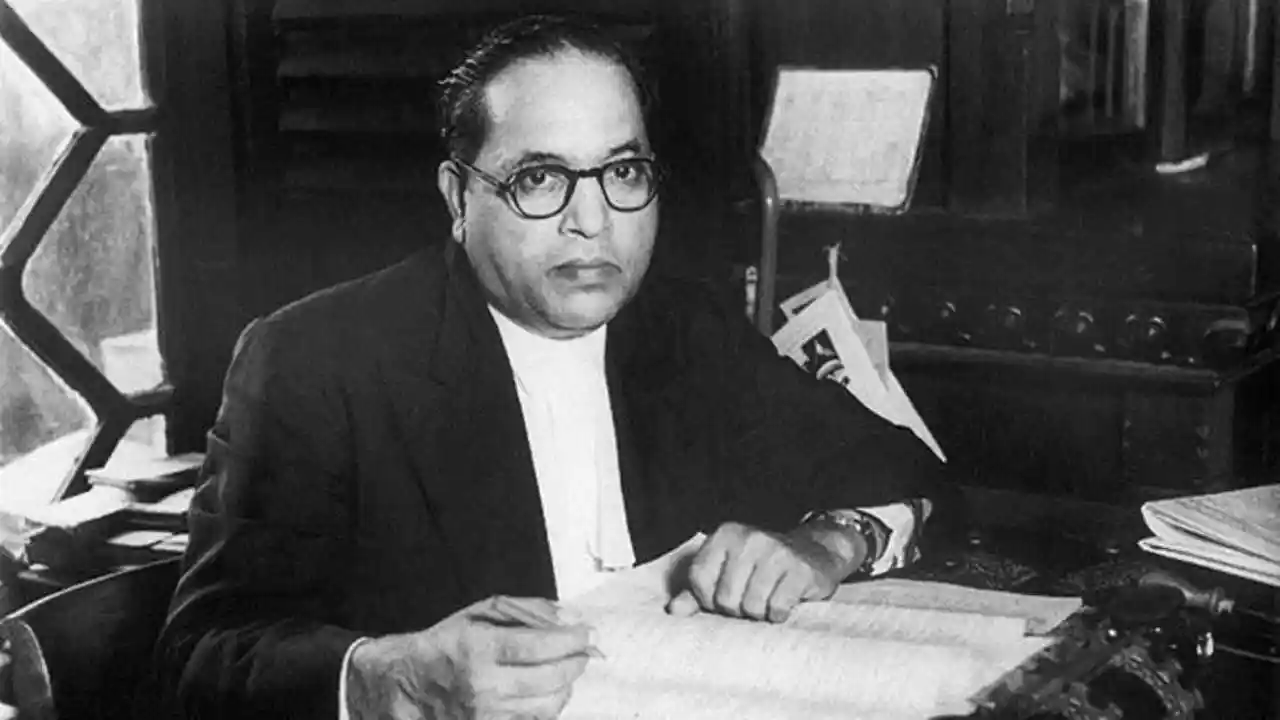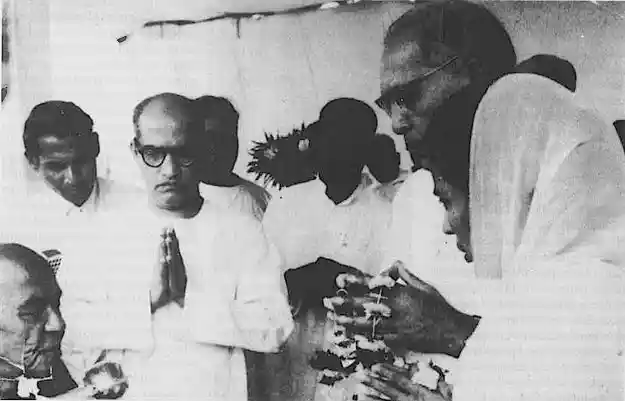“Why do you remain in a religion that does not treat you like a human being?”
These were some of the questions that were thought by the pillar of the Dalit movement in India before he dared to abandon a religion he was born in to make the most daring statement contemporary society had seen.

The face of Dalit rights in India; Image Source- news18.com
Bhimrao Ramji Ambedkar was the most educated man in Indian at one point in history who had a lot to say about the shoddy social formations in India, Belonging from the Mahar caste himself, he faced a lot of discrimination when attaining a proper education. All such experience coupled with his education made him the champion of the Dalit rights movement in India.
If one has made the painstaking efforts to go through the seminal works o Ambedkar such as Annihilation of Caste and Castes in India: Their Mechanism, Genesis and Development one would be privy to Ambedkar’s view on encouraging inter-caste marriage and denying scriptures as a whole to abolish casteism in India.
To Ambedkar, conversion from Hinduism to Buddhism was the only way to assure freedom to the people of his community. He did not want to belong to a religion where it was okay to touch an animal but not another fellow human being. A religion that alters man’s human behaviour towards another man was not acceptable to him.
Thus on 14th October 1956, he along with 500,00 of his followers converted to Buddhism in Nagpur to gain their long-due freedom.
Many have criticised him that the phenomenon of caste was present in other faiths such as Christianity and Islam as well. Ambedkar argued that although it is undeniable that caste was a part of Islam and Christianity as well but it was not the prime characteristic of their social order. Whilst one would just identify oneself as a Christian or Muslim, Hindus would add the suffix of their caste or surname to showcase their hierarchy in society.
Apart from this, one must also take stock of the widely accepted fact that Buddhism emerged in the 6th century BC as an antidote to the Brahmanical hegemony in society. While Hindu society was extremely stratified on the lines of caste, Buddhism was a body that accepted people from all castes and gave them their due respect. This was one of the prime reasons behind the vast popularity of Buddhism in India.
Many scholars have different opinions as to why Ambedkar chose to convert to Buddhism and not any other faith. Gouri Vishwanathan, a professor of Columbia University opined that Ambedkar did not convert to Islam or Christianity due to their foreign nature, they were religions that were not indigenous to India whereas Buddhism took birth on the Indian soil. Although he detested the caste system, Ambedkar loved his country and was a true nationalist.
Buddhism met Ambedkar’s core values of rationality, morality and justice. He later modified Buddhism to include the concepts of Liberty, Equality and Fraternity from the French Revolution. This gave rise to Dali-Buddhism or neo-Buddhism which negated the 4 noble truths of traditional Buddhism.
This mass conversion was the boldest move a community could make that was trampled under the kharam of the Brahmins for centuries. On that day Ambedkar was solely responsible for changing the course of his life along with 500,000 others.

B.R. Ambedkar and his great conversion; Image Source- tricycle.org


